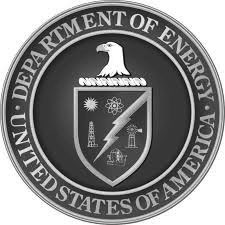Over the next few months, states will be gearing up for presidential primary elections. In primary elections, voters select each political party’s candidates for the general election. Iowa held their presidential caucus on Jan. 15 where former President Donald Trump took the lead against former S.C. Gov. Nikki Haley. New Hampshire had their primary on Jan. 23, with Trump winning with 176,392 votes to Haley’s 140,288.
Trump and Haley are the only two Republicans still in the running for the nomination which will be announced in July at the Republican National Convention in Milwaukee. The Democratic National Convention will be held in August in Chicago where incumbent President Joe Biden, Rep. Dean Phillips (D-Minn.) and author Marianne Williamson share the ticket.
Connecticut’s primary election will be held on April 2 with early voting opening on March 26. At a workshop for newly elected state officials, Secretary of State Stephanie Thomas announced there will be a required two days of training for poll workers before the upcoming election.
The state uses the Centralized Voter Registration System for all towns. The system produces an official voter registry list which contains information regarding voter registration applications, indicating whether eligible voters participated in past elections and primaries and whether they voted in person or by absentee ballot.
Poll workers will need to be trained how to use this online system to make sure the elections maintain integrity.
“I think election workers have just the right amount of nervousness, which is good, because it means everyone is thinking [this] through. We put together a draft handbook, for example, and sent it to the registrars,” Thomas said.
Early voting for state elections and the general presidential election have not been funded yet by Gov. Ned Lamont and the General Assembly. After, the CT General Assembly authorized in person early voting for any elections that take place after April 1, 2024 in the 2023 legislative session.
“Right now, there’s zero allocated from the state for the next fiscal year, which would cover the presidential election and any August primaries,” Thomas said.
State law requires all cities and towns to have at least one early-voting site. Towns or cities with more than 20,000 residents can have multiple sites.
The ballots will not be counted until the primary on April 2. Conn. is in the process of updating tabulators used to count the ballots in each city/town.
“Right now, it does not look like we’ll have them in 2024,” Thomas said to the officials at the workshop. “But just be aware, if that happens, that will also require additional training.”
Thomas serves as the state’s chief elections officer, so she can encourage more funding, but it is up to each municipality to ensure conduct of their elections.
On campus, the majority of students are of voting age. To vote in the primary election, the application must be postmarked by the fifth day before the primary. This means you need to mail in your ballot by March 26.
Students who live in their college town may register to vote in Connecticut or for the student’s respective state fill out an absentee ballot for that state’s primary.
CT gears up for their April Primary
0
More to Discover



